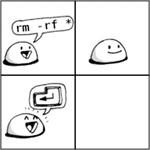http://www.opennet.ru/opennews/art.shtml?num=26447
кто шшупал?
как оно?
←
1
2
→
Ответ на:
комментарий
от GotF

Ответ на:
комментарий
от GotF
Ответ на:
комментарий
от Deleted

Ответ на:
комментарий
от Sylvia

Ответ на:
комментарий
от bender


Ответ на:
комментарий
от bender


Ответ на:
комментарий
от n01r

Ответ на:
комментарий
от Adjkru

Ответ на:
комментарий
от Adjkru

Ответ на:
Для полу-Ъ, которые пошли только по одной ссылке
от Deleted

Ответ на:
комментарий
от tailgunner

Ответ на:
комментарий
от Adjkru

Ответ на:
комментарий
от megabaks

Ответ на:
комментарий
от iZEN

Ответ на:
комментарий
от megabaks

Ответ на:
комментарий
от iZEN

Ответ на:
комментарий
от megabaks

Ответ на:
комментарий
от iZEN

Ответ на:
комментарий
от megabaks

Ответ на:
комментарий
от tailgunner

Ответ на:
комментарий
от yirk

Ответ на:
комментарий
от Dudraug

Ответ на:
комментарий
от n01r
Вы не можете добавлять комментарии в эту тему. Тема перемещена в архив.
Похожие темы
- Форум [JOY] Веб браузер Mozilla Firefox 4 вышел (Final = RC2) (2011)
- Форум Да это просто праздник какой-то! (2008)
- Форум Kotlin теперь в андроиде не нужен? (2021)
- Форум Qt 6 в Debian может не быть (2020)
- Форум хипстеры есть? никто не хочет новость про openindiana запилить? (2017)
- Форум Демократия, она такая (2016)
- Форум gcc 13.1 released (2023)
- Форум Chromebook обогнал ноутбуки с Windows по объёму продаж в B2B-секторе США (2015)
- Форум где тема про dart на лоре? (2018)
- Форум камика^Wмажоры в моём линуксе? (2010)